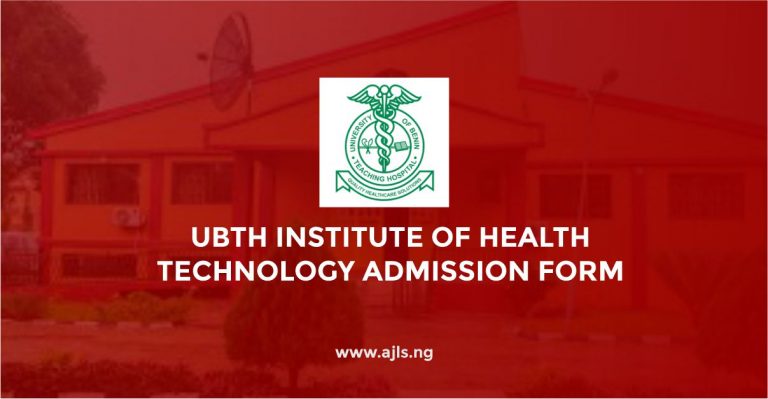NECO Syllabus for Agricultural Science 2025

The adage ‘proper preparation prevents poor performance’ rings true. If you wish to excel in your NECO Agricultural Science exam, the most important thing to do is to study the official NECO Syllabus for Agricultural Science thoroughly. This will ensure your knowledge aligns with the exam’s marking scheme and help you anticipate the types of questions you’ll encounter.
Agricultural Science is a vital subject for students aspiring to pursue careers in agriculture, environmental science, and related fields. To excel in the National Examination Council (NECO) Agricultural Science examination, students must be familiar with the comprehensive syllabus that serves as a roadmap for preparation.
The National Examination Council (NECO) has just introduced a revised NECO Syllabus for Agricultural Science for the upcoming examination to guide participants in effectively preparing. This updated framework encourages students to study each topic thoroughly, ensuring better performance and improved grades. Below is a detailed guide to the NECO Agricultural Science syllabus, including its structure, focus areas, and recommended study approach. Kindly read the information below carefully for more understanding.
Objectives of the NECO Agricultural Science Syllabus
The syllabus is designed to:
- Expose students to the principles and practices of agriculture.
- Equip students with practical knowledge and skills in agriculture to encourage self-reliance.
- Highlight the significance of agriculture to the economy.
- Foster the development of interest in agricultural careers.
- Encourage innovative and sustainable farming practices.
NECO Syllabus for Agricultural Science 2025/2026
The NECO syllabus for Agricultural Science is divided into sections, covering theoretical and practical components. Below is an outline of the key areas:
1. Basic Concepts of Agriculture
- Meaning, scope, and importance of agriculture.
- Branches of agriculture (e.g., agronomy, animal husbandry, forestry, fishery).
- Agricultural development in Nigeria.
2. Agricultural Ecology
- Ecosystem and its components.
- Agricultural biomes.
- Effects of climatic factors on agriculture (temperature, rainfall, wind, and sunlight).
- Soil formation and types.
- Soil fertility and its maintenance.
3. Soil and Water Conservation
- Importance of soil conservation.
- Methods of soil conservation (e.g., crop rotation, contour plowing).
- Water management techniques.
- Irrigation and drainage systems.
4. Crop Production
- Classification of crops (cereals, legumes, vegetables, etc.).
- Cultivation practices for major crops in Nigeria.
- Crop diseases and pests: types, causes, and control measures.
- Post-harvest management and storage.
5. Animal Production
- Classes of farm animals (ruminants and non-ruminants).
- Management practices for livestock (housing, feeding, breeding).
- Common diseases and parasites in farm animals.
- Role of animals in agriculture.
6. Agricultural Economics and Extension
- Basic concepts in agricultural economics (demand, supply, and market systems).
- Farm budgeting and record-keeping.
- Principles of agricultural extension.
- Role of cooperatives in agriculture.
7. Agricultural Mechanization
- Farm tools and their uses.
- Tractor and implement maintenance.
- Mechanization in crop and animal production.
8. Forestry and Wildlife Management
- Importance of forestry to agriculture.
- Wildlife conservation methods.
- Sustainable management of forest resources.
9. Fishery and Aquaculture
- Types of fishery (marine and freshwater).
- Fish farming techniques.
- Importance of fisheries to the economy.
10. Practical Agriculture
This section focuses on hands-on activities, such as:
- Identification and use of farm tools.
- Soil testing and analysis.
- Identification of crops and weeds.
- Demonstration of animal husbandry practices.
- Crop planting and harvesting techniques.
How to Use the Syllabus Effectively
- Familiarize yourself with all topics listed in the syllabus.
- Allocate specific time slots to cover theoretical and practical aspects.
- Practice farm activities to reinforce theoretical concepts.
- Review previous NECO Agricultural Science questions to identify trends and focus areas.
- Collaborate with teachers and peers to clarify challenging topics.
Neco Grading System for Agricultural Science 2025/2026
The NECO (National Examination Council) grading system for Agricultural Science and other subjects typically follows a general structure for awarding grades. Here’s a breakdown of how NECO grades its exams:
Grading Scale
- A1 (Excellent): 75-100%
- B2 (Very Good): 70-74%
- B3 (Good): 65-69%
- C4 (Credit): 60-64%
- C5 (Credit): 55-59%
- C6 (Credit): 50-54%
- D7 (Pass): 45-49%
- E8 (Pass): 40-44%
- F9 (Fail): 0-39%
Key Notes
- The grades A1 to C6 are considered passes and are regarded as distinctions and credits, respectively.
- The grades D7 and E8 are considered low passes, often not accepted for admission requirements in tertiary institutions.
- F9 is a fail grade and indicates insufficient performance.
This grading scale applies not only to Agricultural Science but also to other subjects examined under NECO. However, performance in Agricultural Science specifically depends on how well a student performs in the theory, practical, and objective components of the examination.
How To Register For NECO 2025/2026
Registering for the NECO 2025/2026 exams is straightforward. Follow these steps to ensure a smooth process. Ensure you meet the requirements for the chosen exam type.
- Visit the NECO Portal at www.neco.gov.ng to start your registration.
- Create an Account by Providing your email, phone number, and other details to create an account.
- Purchase a Registration PIN.
- Get a PIN from approved vendors or online via the NECO portal.
- Complete the Registration Form. Log in to your account and: Fill in personal and school details, Choose subjects and the exam center, and Upload a passport photo and biometric data.
Check your details, submit, and print your acknowledgment slip with your registration number and exam details. Start your preparation early using the NECO syllabus and past questions. Visit the NECO website for updates or assistance.
Conclusion
The NECO Agricultural Science curriculum is an important resource for test preparation. Students can acquire confidence and do well on tests by following its planned structure, participating in hands-on activities, and utilizing available materials. Understanding agricultural principles is essential for future agricultural specialists since they are a critical pillar of national growth.





